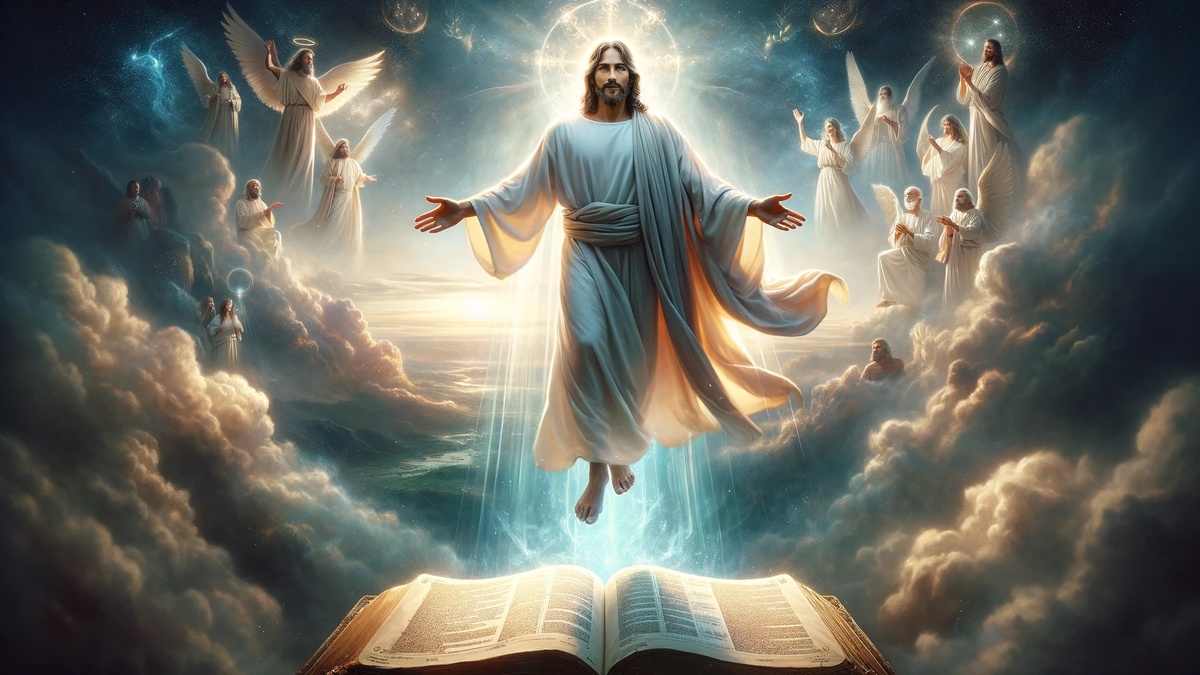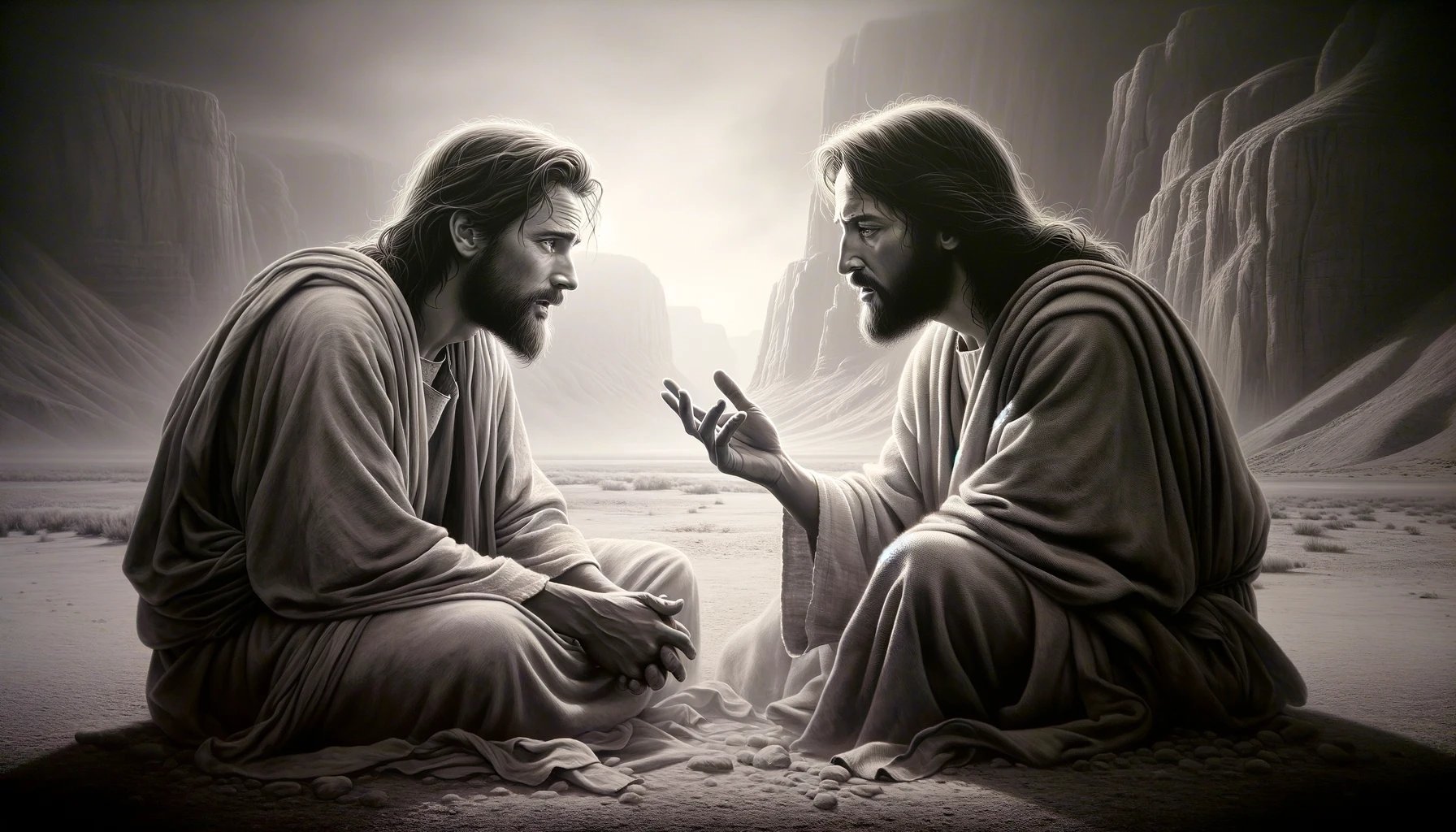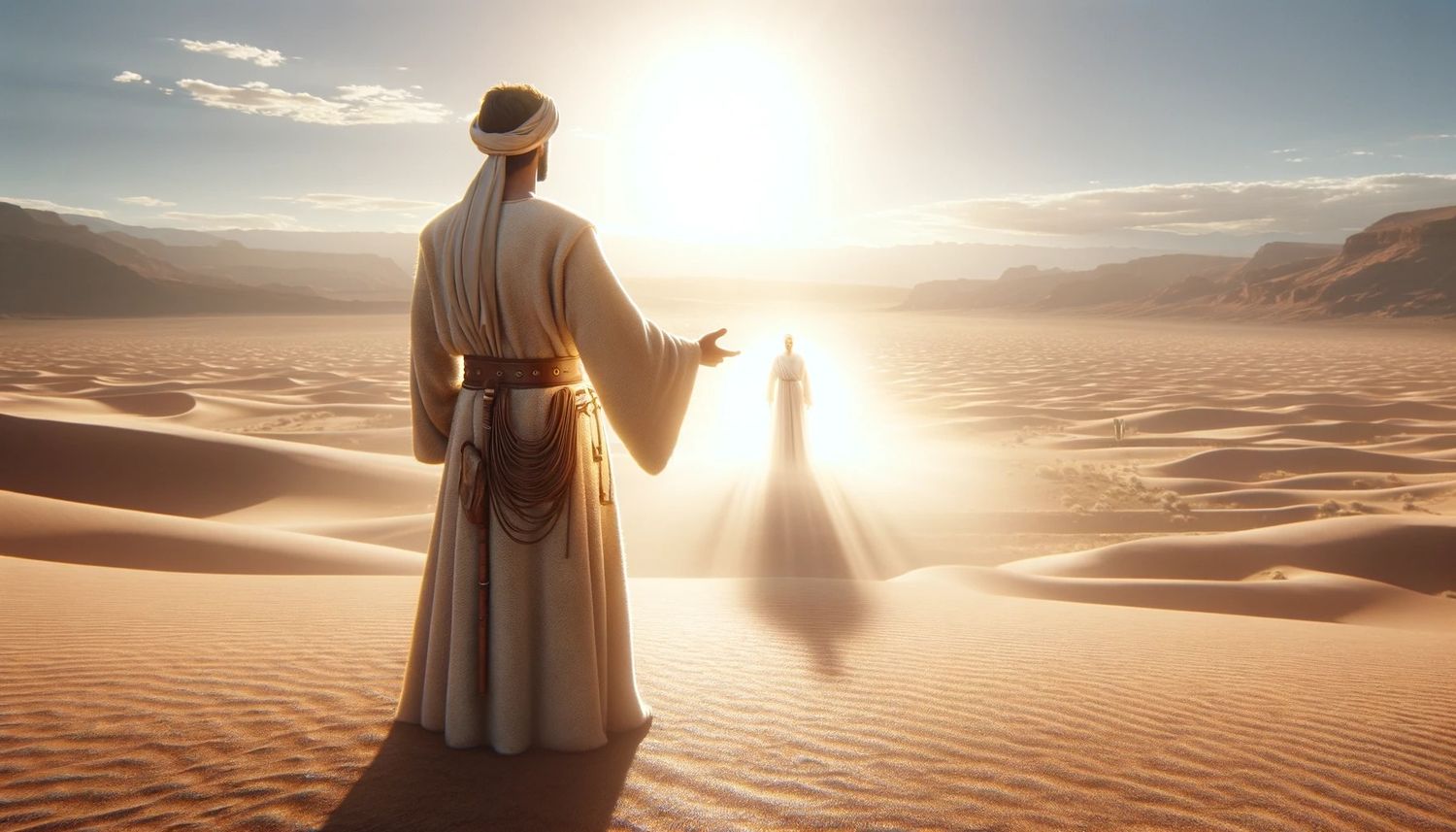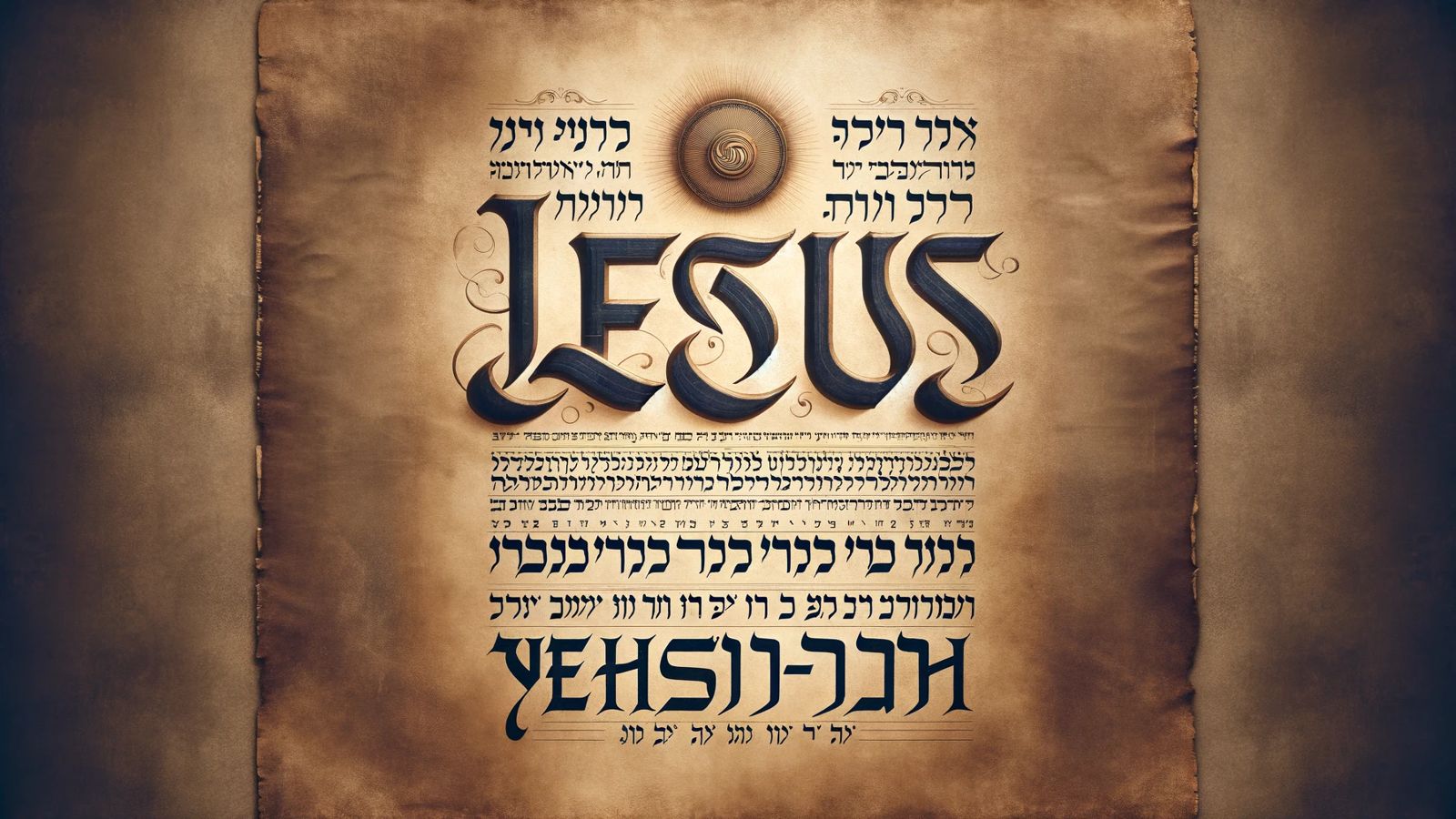Home>Christian Videos>Bible Stories>What Islam Says About Jesus Christ


Bible Stories
What Islam Says About Jesus Christ
Published: March 2, 2024
Jason DeRose, Managing Editor at Christian.net, uses his expertise in religion and journalism to deepen understanding of faith's societal impacts. His editorial leadership, coupled with a strong academic background, enriches the platform’s diverse content, earning him recognition in both journalism and religious circles.
Discover what Islam teaches about Jesus Christ in this insightful exploration of Bible stories and Islamic perspectives. Explore the similarities and differences between the two faiths.
(Many of the links in this article redirect to a specific reviewed product. Your purchase of these products through affiliate links helps to generate commission for Christian.net, at no extra cost. Learn more)
Table of Contents
The Importance of Jesus Christ in Islam
Jesus Christ holds a significant place in Islam, as he is considered one of the greatest prophets sent by Allah. His teachings and life serve as a source of inspiration and guidance for Muslims around the world. The reverence for Jesus in Islam is a reflection of the religion's recognition of the Abrahamic lineage of prophets, with Jesus being a central figure in this lineage. The importance of Jesus Christ in Islam is evident in the Quran and the teachings of Prophet Muhammad, emphasizing the shared values and beliefs between Islam and Christianity. Here are some key points that highlight the importance of Jesus Christ in Islam:
-
Prophethood: In Islam, Jesus is revered as a prophet who was chosen by Allah to deliver his message to the people. His prophethood is a testament to his righteousness and devotion to spreading the word of God. Muslims hold Jesus in high esteem for his unwavering commitment to fulfilling his divine mission.
-
Messenger of Peace: Jesus Christ is recognized in Islam as a messenger of peace and compassion. His teachings emphasize love, forgiveness, and the importance of treating others with kindness and empathy. Muslims are encouraged to embody these values in their daily lives, drawing inspiration from the example set by Jesus.
-
Virgin Birth: The Quran affirms the miraculous birth of Jesus to the Virgin Mary, underscoring his special status as a chosen servant of Allah. This miraculous event is a cornerstone of Jesus' significance in Islam, highlighting his unique and honorable birth.
-
Resurrection: While there are theological differences between Islam and Christianity regarding the crucifixion and resurrection of Jesus, Muslims believe in the ascension of Jesus and await his return in the Second Coming. This belief underscores the enduring importance of Jesus Christ in Islamic eschatology.
-
Unity of Prophethood: Islam emphasizes the unity of prophethood, recognizing the interconnectedness of the messages brought by different prophets, including Jesus. Muslims honor Jesus as part of the broader tapestry of prophetic guidance, affirming the continuity of divine revelation throughout history.
The importance of Jesus Christ in Islam is a testament to the religion's reverence for the Abrahamic prophets and the interconnectedness of faith traditions. His teachings, character, and spiritual significance continue to resonate deeply within the hearts of Muslims, fostering a sense of shared reverence and admiration for Jesus as a revered figure in Islamic belief.
Read more: What Does The Quran Say About Jesus Christ
The Role of Jesus Christ in Islamic Beliefs
-
Prophet and Messenger: In Islamic beliefs, Jesus Christ holds the esteemed position of being a prophet and messenger of Allah. His role as a divine messenger is pivotal in conveying the message of monotheism and righteousness to humanity. Muslims revere Jesus for his unwavering commitment to fulfilling his prophetic duties and for exemplifying the highest moral and ethical standards.
-
Exemplar of Righteousness: Jesus Christ is regarded as an exemplar of righteousness and piety in Islamic beliefs. His life serves as a model for Muslims, inspiring them to emulate his virtues of compassion, humility, and devotion to God. The ethical teachings and actions of Jesus continue to resonate within Islamic traditions, guiding believers towards a path of spiritual fulfillment and moral uprightness.
-
Bearer of Glad Tidings: Within Islamic beliefs, Jesus is recognized as the bearer of glad tidings, heralding the coming of Prophet Muhammad. His mention in the Quran signifies the continuity of divine revelation and the interconnectedness of prophetic missions throughout history. Muslims honor Jesus for his role in paving the way for the finality of prophethood with the advent of Prophet Muhammad.
-
Intercessor on the Day of Judgment: Islamic beliefs uphold the concept of Jesus Christ serving as an intercessor on the Day of Judgment. Muslims hold the conviction that Jesus will advocate on behalf of his followers, seeking mercy and forgiveness for them before Allah. This belief underscores the profound significance of Jesus in the eschatological framework of Islam, offering hope and reassurance to believers.
-
Symbol of Unity and Compassion: Jesus Christ symbolizes unity and compassion within Islamic beliefs. His teachings emphasize the universal values of love, mercy, and social justice, transcending cultural and religious boundaries. Muslims hold Jesus in high regard for his message of inclusivity and empathy, fostering a sense of interconnectedness and shared humanity among diverse communities.
-
Awaited Return: Islamic beliefs affirm the awaited return of Jesus Christ in the Second Coming. This anticipation underscores the enduring relevance of Jesus in Islamic eschatology, signifying his pivotal role in the culmination of divine justice and the establishment of peace. Muslims eagerly anticipate the return of Jesus as a harbinger of spiritual renewal and the triumph of righteousness.
The role of Jesus Christ in Islamic beliefs encompasses his profound significance as a revered prophet, a paragon of virtue, and a symbol of hope and compassion. His enduring influence within Islamic traditions underscores the deep reverence and admiration that Muslims hold for Jesus, affirming his timeless relevance as a spiritual exemplar and a source of divine guidance.
Jesus Christ in the Quran
The Quran, the central religious text of Islam, holds a revered position in presenting the narrative of Jesus Christ and his esteemed status as a prophet and servant of Allah. The Quranic portrayal of Jesus provides profound insights into his miraculous birth, his noble character, and his pivotal role in conveying the message of monotheism. Here are key aspects of Jesus Christ in the Quran:
-
Virgin Birth: The Quran affirms the miraculous birth of Jesus to the Virgin Mary, underscoring his special status as a chosen servant of Allah. The account of Mary's devotion and the divine conception of Jesus serves as a testament to the extraordinary nature of his birth, emphasizing his unique and honorable lineage.
-
Prophetic Mission: Jesus is depicted in the Quran as a prophet who was bestowed with divine wisdom and guidance to impart the message of monotheism to the Children of Israel. His prophetic mission underscores the continuity of prophethood and the enduring relevance of his teachings in guiding humanity towards spiritual enlightenment.
-
Miracles: The Quran elucidates the miraculous feats performed by Jesus, including healing the blind and the leper, and raising the dead with the permission of Allah. These miracles attest to his exalted status as a servant of Allah and serve as a testament to his divine mission.
-
Divine Revelation: Jesus is honored in the Quran as a recipient of divine revelation, receiving the Injeel (Gospel) to guide his followers towards righteousness and moral uprightness. His role as a bearer of divine scripture underscores the significance of his teachings in shaping the ethical and spiritual landscape of his community.
-
Exemplar of Righteousness: The Quranic narrative of Jesus portrays him as an exemplar of righteousness, humility, and devotion to Allah. His unwavering commitment to fulfilling his prophetic duties and his steadfastness in the face of adversity serve as a source of inspiration for believers, reflecting the highest moral and ethical standards.
-
Ascension and Second Coming: The Quranic account of Jesus includes his ascension to the heavens, affirming his elevated status in the divine realm. Furthermore, the Quran alludes to the awaited return of Jesus in the Second Coming, signifying his pivotal role in the eschatological framework of Islam.
The Quranic depiction of Jesus Christ encapsulates his profound significance as a revered prophet and a symbol of divine mercy and guidance. His portrayal in the Quran serves to emphasize the shared reverence for Jesus in both Islam and Christianity, highlighting the interconnectedness of faith traditions and the universal message of monotheism and righteousness.
The Miracles of Jesus Christ in Islamic Tradition
The Islamic tradition reveres Jesus Christ for the extraordinary miracles attributed to him, underscoring his exalted status as a servant of Allah and a bearer of divine authority. The miracles performed by Jesus serve as a testament to his prophetic mission and his unique connection to the divine realm. Within Islamic tradition, the miracles of Jesus Christ hold profound significance, inspiring believers and affirming his unparalleled role as a manifestation of divine power and mercy. Here are some of the notable miracles of Jesus Christ in Islamic tradition:
-
Healing the Sick: Jesus is revered in Islamic tradition for his ability to heal the sick and infirm through the power and permission of Allah. His miraculous healing of the blind, the leper, and those afflicted with various ailments exemplifies his compassionate nature and his capacity to alleviate suffering through divine intervention.
-
Raising the Dead: Islamic tradition attributes the miraculous feat of raising the dead to Jesus Christ, demonstrating his authority over life and death. By the will of Allah, Jesus restored life to the deceased, showcasing his profound connection to the divine realm and his role as a conduit for divine mercy and restoration.
-
Creation of Birds from Clay: The Quranic narrative of Jesus includes the account of him fashioning birds from clay and breathing life into them, thereby manifesting a miraculous display of creative power. This extraordinary act serves as a testament to Jesus' unique relationship with Allah and his ability to manifest the miraculous through divine will.
-
Knowledge of the Unseen: Jesus Christ is revered in Islamic tradition for his knowledge of the unseen and his ability to impart wisdom and guidance beyond the realm of human comprehension. His profound insight into the mysteries of existence underscores his exalted status as a recipient of divine knowledge and a source of spiritual enlightenment.
-
Miraculous Provisions: Islamic tradition acknowledges the miraculous provisions granted by Jesus, including the multiplication of food to feed the hungry and the destitute. His ability to manifest sustenance through divine intervention reflects his compassion and his capacity to alleviate the hardships faced by his followers.
-
Defending the Truth: Jesus Christ's unwavering defense of the truth and his steadfastness in upholding the message of monotheism amidst adversity are regarded as miraculous demonstrations of spiritual resilience and unwavering faith. His resilience in the face of opposition serves as an enduring source of inspiration for believers.
The miracles of Jesus Christ in Islamic tradition serve to affirm his exalted status as a beloved servant of Allah and a manifestation of divine mercy and authority. His extraordinary feats underscore the profound connection between the earthly and the divine, inspiring believers to uphold the values of compassion, righteousness, and unwavering faith. The enduring significance of Jesus' miracles in Islamic tradition reflects the timeless appeal of his message and the universal resonance of his divine manifestations.
The Second Coming of Jesus Christ in Islam
The concept of the Second Coming of Jesus Christ, known as the "Return of Isa" in Islamic eschatology, holds profound significance in Muslim belief. According to Islamic tradition, Jesus Christ will return to Earth before the Day of Judgment, playing a pivotal role in the culmination of divine justice and the establishment of peace and righteousness. The anticipation of Jesus' return underscores his enduring relevance in Islamic eschatology and his pivotal role in shaping the destiny of humanity. Here are key aspects of the Second Coming of Jesus Christ in Islam:
-
Role as a Just Ruler: Islamic belief holds that Jesus will return as a just ruler, upholding the principles of equity and righteousness. His leadership will usher in an era of peace and harmony, dispelling injustice and oppression from the Earth. Muslims anticipate Jesus' return as a beacon of hope and a catalyst for the restoration of moral order.
-
Defeat of Ad-Dajjal: Islamic tradition prophesies that Jesus will confront and defeat Ad-Dajjal, the false messiah or Antichrist, who embodies deception and corruption. Jesus' triumph over Ad-Dajjal symbolizes the victory of truth over falsehood and the eradication of evil from the world, paving the way for a reign of divine justice.
-
Global Reconciliation and Harmony: The Second Coming of Jesus Christ in Islam is associated with the reconciliation of divergent beliefs and the establishment of universal harmony. His return will unite humanity under the banner of monotheism, fostering mutual respect and understanding among diverse communities. Muslims anticipate Jesus' role in fostering global unity and cooperation.
-
Endorsement of Islamic Principles: Islamic eschatological narratives depict Jesus as affirming the principles of Islam upon his return, emphasizing the continuity of monotheistic faith and the validation of Prophet Muhammad's message. His endorsement of Islamic teachings will serve as a unifying force, reaffirming the timeless relevance of monotheism and moral conduct.
-
Establishment of Divine Justice: The Second Coming of Jesus Christ in Islam signifies the establishment of divine justice and the eradication of tyranny and oppression. His leadership will exemplify the highest standards of ethical governance, ensuring equity and compassion for all. Muslims await Jesus' return as a harbinger of universal justice and compassion.
-
Sign of the Hour: The return of Jesus Christ is regarded as a sign of the impending Day of Judgment in Islamic eschatology. His arrival will herald the culmination of human history and the onset of the final reckoning, underscoring the urgency of spiritual preparedness and moral rectitude.
The concept of the Second Coming of Jesus Christ in Islam encapsulates the profound anticipation of his return as a transformative and redemptive figure. His role in establishing justice, defeating falsehood, and fostering global harmony resonates deeply within Islamic belief, offering believers a source of hope and reassurance in the face of adversity. The enduring significance of Jesus' return underscores the timeless appeal of his message and the universal yearning for divine mercy and guidance.















